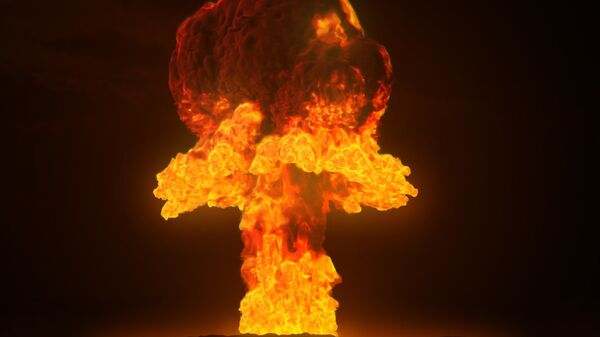On Monday, Politico reported that US lawmakers sent a proposal to the White House urging the administration to withdraw from the INF arms control treaty that was negotiated by President Ronald Reagan and President of the Soviet Union Mikhail Gorbachev in 1987.
"Essentially, this lunacy opens the door for a Pershing II follow on and possibly a new Ground Launched Cruise Missile," Spinney said. "Trashing the intermediate range nuclear treaty opens the money spigot for the only weapons not now included in the across the board nuclear modernization program."
Successive US administrations and congresses were sleep-walking into a new and avoidable nuclear arms race with Russia, Spinney cautioned.
A new generation of intermediate-range nuclear missiles could be based in Eastern Europe or Taiwan, South Korea and other countries, Spinney observed.
Scrapping the INF treaty would reopen the way for the US Army to rearm and re-equip its forces with shorter-range nuclear-armed missiles and launch a new weapons spending spree, Spinney predicted.
"A very attractive piece of such a program is that it would give the Army a piece of the offensive nuclear action. Currently offensive nuclear weapons are monopolized by Navy [and] Air Force and that weakens the Army leverage in the Pentagon budget battlefield," he said.
For the US armed forces, power came out of the size of the financial appropriations they could control that had bene approved by Congress, Spinney explained.
The United States and the American people would not be made safer by abandoning the INF Treaty but the powerful military-industrial lobby within the country looked likely to have its way in scrapping the 30-year-old agreement, Spinney acknowledged.
Spinney added that this insane approach provides yet another example of how domestic policies "trump a rational foreign policy."
The 1987 treaty prohibits the development, deployment or testing of ground-launched ballistic or cruise missiles with ranges between 300 and 3,400 miles. Russia is party to the INF treaty, as the Soviet Union's successor state. The treaty was implemented in 1991, with inspections continuing until 2001.
Russian Foreign Minister Sergey Lavrov has repeatedly said that Moscow was in full compliance with the INF treaty. According to Lavrov, Moscow had its own concerns over Washington's compliance with the INF Treaty and that the Russian side had repeatedly called on US partners to substantially discuss the most controversial points related to the agreement's implementation.
In February, US media reported that Russia had deployed nuclear cruise missiles in violation of the INF Treaty. In March, US Joint Chiefs of Staff Vice Chairman Gen. Paul Selva said in a congressional testimony that the United States aims to "look for leverage points" seeking Russia's compliance with the treaty.



